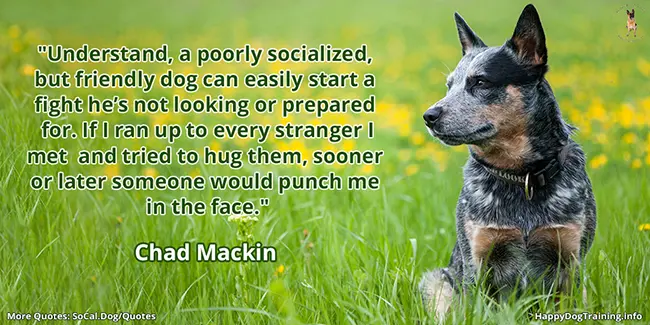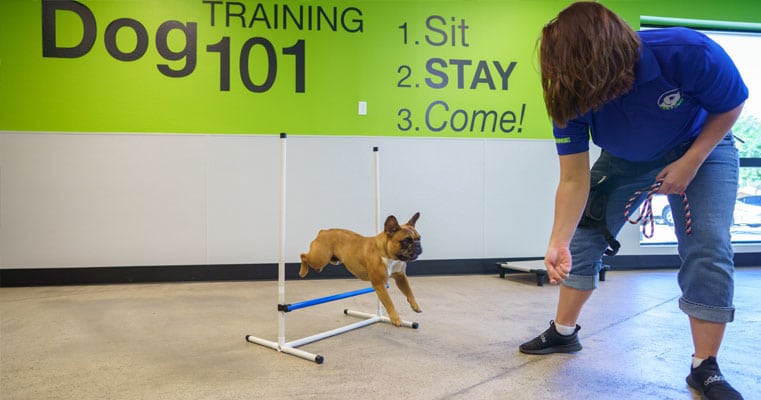Unlock Your Canine's Prospective: Proven Pet Dog Training Approaches for Success
Effective dog training is a nuanced process that rests on understanding canine behavior and employing scientifically backed techniques. Dog training. By incorporating favorable support, developing clear commands, and focusing on socializing, pet dog owners can cultivate an efficient connection with their family pets. Obstacles usually arise that call for customized remedies and an individual technique. Checking out these verified techniques reveals not only the potential for behavior enhancement but additionally the much deeper bond that can be developed between owner and dog. What important strategies must be thought about to genuinely unlock your pet's capacity?
Comprehending Pet Habits
Recognizing canine actions is necessary for efficient training and cultivating a positive partnership between pet dogs and their owners. A detailed grasp of canine body movement, articulations, and social interactions is critical for acknowledging their emotions and requirements. Dogs interact largely through non-verbal signs; as an example, a wagging tail might indicate enjoyment, while pinned ears can signify worry or entry.

Moreover, ecological variables play a substantial duty fit a pet dog's habits. Modifications in routine, brand-new environments, or the existence of unknown individuals can result in tension or anxiety in dogs. Identifying these triggers makes it possible for proprietors to minimize negative reactions and develop suitable training strategies.
Inevitably, a deep understanding of pet actions lays the structure for successful training approaches, boosting both habits and the overall bond in between the pet dog and its owner. dog training charlotte nc. This understanding is important for promoting a well-adjusted, pleased canine companion
Favorable Support Methods
Effective training counts greatly on favorable reinforcement strategies, which have been revealed to produce significant lead to forming desired actions in pet dogs. This approach entails awarding a pet for displaying specific actions, thus increasing the probability that these behaviors will certainly be repeated. Incentives can take different kinds, including deals with, praise, playthings, or playtime, depending upon what encourages the individual pet.

It is vital to progressively eliminate rewards as the dog finds out the habits, transitioning to intermittent support. This method maintains the actions gradually while avoiding dependence on continuous rewards. By concentrating on favorable reinforcement, fitness instructors can cultivate a trusting partnership with their canines, promoting a healthy and balanced and cooperative training setting that enhances total obedience and performance.
Developing Consistent Commands
A basic element of effective canine training is the facility of consistent commands. Uniformity in commands is essential for reliable communication in between the dog and the fitness instructor. When commands are consistent, canines find out to associate certain words with desired habits, which increases the training process and boosts understanding.
To establish constant commands, it is crucial that all relative make use of the same terms and motions. If one individual uses "sit" while an additional claims "sit down," it can produce complication for the pet. Select clear, distinct words for commands and guarantee everybody entailed in the dog's training adheres to these options.
Furthermore, see rep is vital. Reinforce commands through regular method, making certain that the pet receives sufficient chances to react properly. When a pet efficiently adheres to a command, immediate positive reinforcement should follow. This could be in the form of treats, praise, or playtime, solidifying the connection between the command and the action.
Finally, hold your horses. Establishing consistent commands takes time and effort. With devotion and quality, you will certainly assist your canine establish a strong understanding of expectations, inevitably bring about a mannerly buddy.
Socialization and Exposure
Socializing a pet is necessary for promoting a well-adjusted and positive friend. This process involves revealing your canine to a variety of settings, people, and various other pets to develop their social abilities and versatility. Early socialization, preferably between the ages of 3 to fourteen weeks, is important, as it lays the groundwork for a pet dog's future behavior.
Throughout socialization, aim to supply positive experiences in various settings, such as parks, active streets, and homes with various other animals. Present your canine to numerous stimuli, consisting of sounds, views, and scents, making sure that each experience is satisfying. This direct exposure assists minimize worry and anxiousness, leading the way for a more durable pet.
Involving in regulated team play sessions with various other dogs can also improve social abilities, teaching your pet suitable interactions and limits. Prioritizing socializing will substantially add to your pet's total joy and actions throughout their life.
Conquering Common Training Challenges

An additional regular concern is diversion. Canines might have a hard time to concentrate in unfamiliar or active settings. Slowly desensitize your dog to diversions by starting training in a peaceful setting and slowly presenting more stimuli as they become skilled (Dog training). Positive support strategies, such as treats and praise, can keep motivation and focus.
In addition, behavioral concerns like jumping or extreme barking can end up being frustrating. Address these by instructing different habits, such as sitting comfortably when welcoming visitors. Consistency and patience are important; strengthen preferred habits constantly and stay clear of abuse, which can cause complication.
Finally, acknowledge find more info that each pet dog is special, and training timelines might vary. Tailor your method to your canine's individual needs, and seek specialist advice if essential. With willpower and the ideal methods, getting rid of these obstacles can bring about a trained, delighted canine buddy.
Conclusion
In conclusion, opening a pet's prospective requires a comprehensive approach that includes an understanding of canine habits, the application of positive support methods, and the establishment of consistent commands. Early socializing and exposure to varied settings further boost a pet dog's adaptability and self-confidence. By attending to common training obstacles with customized strategies and perseverance, a harmonious and cooperative partnership between pet and handler can be fostered, eventually resulting in a mannerly companion efficient in flourishing in numerous circumstances.
Reliable canine training is a nuanced procedure that hinges animal handling course on recognizing canine habits and using scientifically backed approaches.Understanding pet behavior is crucial for efficient training and cultivating a positive connection in between canines and their proprietors.Effective training depends greatly on positive support techniques, which have been revealed to yield considerable outcomes in shaping preferred habits in dogs. When commands are uniform, pet dogs find out to associate certain words with wanted behaviors, which speeds up the training procedure and enhances understanding.
In final thought, opening a dog's prospective requires a comprehensive method that integrates an understanding of canine actions, the application of favorable reinforcement strategies, and the facility of consistent commands.